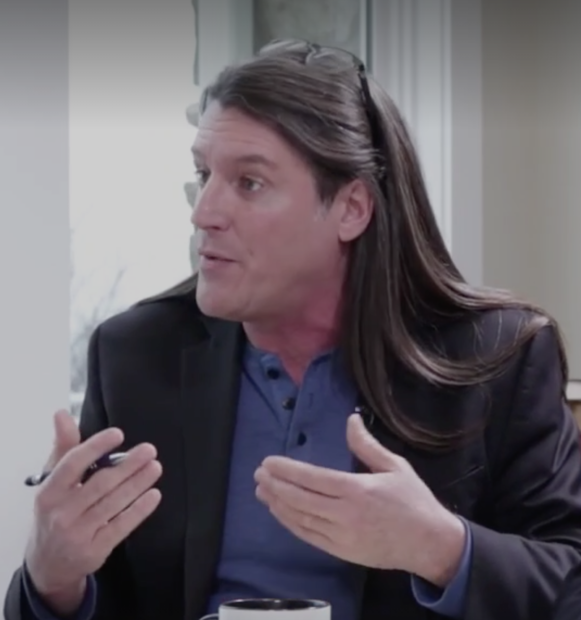
For the first time, Idaho’s Professional Standards Commission may offer ethics training to classified personnel who work with children — like bus drivers, cafeteria staff and paraprofessionals.
Research indicates that educators make between 1,500-3,000 non-trivial decisions in a day. And classified staff who work alongside children face the same responsibility.
“Bus drivers are often the first happy face these kids see and the last happy thing they see at the end of the day,” said Kimberly School District Superintendent Luke Schroeder. “The kids get to know our janitors, they get to know our maintenance guy. And so we want to make sure that they understand what’s professional and what’s not.”
The new resources will likely be available to school districts and charter schools statewide in the fall.
The state requires teachers to have ethics training, which entails checking a box on their application affirming they have read the Idaho professional educators ethics code, according to the State Department of Education.
But classified personnel do not receive any ethics training, the SDE said. Classified employees also include IT specialists, administrative support staff, coaches, substitutes and volunteers.
The process of developing resources for classified employees started last month and will continue at the PSC’s next meeting on June 15. They are looking closely at the training model used by Schroeder.
Schroeder uses a proactive approach developed by Troy Hutchins, a former teacher and researcher. Hutchins is a senior policy advisor for the National Association for the State Directors of Teacher Education and Certification, and is a subject matter expert on educator ethics.
In Kimberly, Schroeder encourages a non-judgemental culture that openly talks about ethical dilemmas. They also created an ethics team that supports and advises both teachers and classified employees. All district employees who interact with children are required to receive training.
“As a profession, we don’t do a lot of ethics training,” Schroeder said, because it’s generally handled as a punitive measure: catching an offender and delivering a consequence.
At the end of 2022, there were 32,571 teachers, principals, superintendents, social workers, psychologists and speech pathologists holding certification. One hundred and forty-two of those had action taken on their certificate — denial, revocation, permanent revocation, suspension, letter of reprimand and conditions placed on their certificate, the SDE reports.
“We all make mistakes. This is about supporting one another. And trying to create a professional district, because it’s going to help kids, and we don’t ever want our kids to get hurt,” Schroeder said.
With the help of Hutchins’ research, Kimberly encourages the staff to seek answers and support each other.
“We’ve opened up that dialogue and it’s no longer the elephant in the living room,” Schroeder said. “So if we can catch it before it happens, then we protect children.”
Training relies on case studies. The following are examples of decisions faced by educators:
- A single, 24-year-old teacher gets a friend request from one of his top AP students on social media. How do I handle that?
- A young female teacher is asked by a couple of friendly parents to accompany them for a drink because their kids are on the debate team. How do I handle that?
- Your children attend the school you work at, and they invite a student from school over to your house for a sleepover. How do I handle that?
- A helpful parent pulls you aside and is concerned about her child’s friend who is always getting picked on. That parent has good intentions. She wants to advocate for that child. So she asks you about his home life, parents and friendships. How do I handle that?
- One of your favorite seniors comes to you and says, “You’re the only person in my life that I can trust. If I tell my parents this secret, they are going to force me to have an abortion, which I don’t want to do.” How do I handle that?
- At the end of the day, you walk out to your car and find a note under your windshield. The note is a love letter from one of your students. How do I handle that?
Kimberly’s training matrix relies on three tiers that define the slippery slope of ethics.
Tier one is optimal ethical performance. This is the zone where educators want to stay.
Tier three is a jail-related or revoked-license scenario. This results in licenses being revoked for criminal or unethical behavior.
And tier two is where Kimberly’s training focuses — the gray areas where there isn’t enough guidance. The bulk of Schroeder’s training tries to provide answers for ethical problems that are unforeseen or haven’t been addressed.
“I’ve done a lot of work in ethics and I read the code of ethics, and some of the things I’ve read, I’m scratching my head about,” Schroeder said.
“If you can catch (the problem) early on and get them turned around, you’re going to help kids and you’re going to help the profession,” he said. “We went into education to do what’s best for kids. And if this will help students, you have to help teachers.”
To read more about Hutchins’ work, use this link. To see the ethics training slides developed and used by the Kimberly district, use this link.
